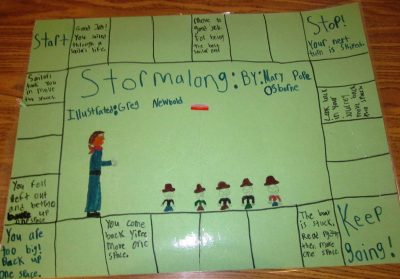I absolutely support the rights of parents to send their disabled children to mainstream school education.
In this article I want to look at the logistical challenges that face schools when they admit a disabled child.



I absolutely support the rights of parents to send their disabled children to mainstream school education.
In this article I want to look at the logistical challenges that face schools when they admit a disabled child.

If you’ve read many of my articles you will already know that I am great believer in being organised. In whatever I did in teaching, at whatever level, I liked to have a plan and to have thought things through and be organised…including “plan B’s”
At the moment one of my current concerns is teacher workload and I will be looking at specific causes of that a little more next week and some things that can be addressed.
However today I am going to look at how your own personal organisation might be “tweaked” a little to make things easier for yourself and to free up some valuable “you / family time.”
ECT’s: – if you are a newly qualified teacher then I can categorically tell you to expect a higher workload and time input into your teaching just because of your experience. No matter which route you took into teaching, your learning really starts when you have your first class in your first job. As with any new career you are at the start of a learning curve that sits right across everything you do. So expect to spend more time planning, marking and generally thinking about your teaching ( and partners should be aware of this also). However, and I say this to all ECT’s, expect this type of pressure to last 2 years and then you should be actively working to reduce your workload and re-addressing your work/ life balance. Knowing this gives you some clarity not only in the work that you are currently doing but also a view of the light at the end of the tunnel.
Lets be quite honest about this – teaching is a special career. But career it is…it is not a higher calling and does not pay hundreds of thousands of pounds a year! So lets put things in perspective a little and try to get back control of our lives and put our JOB where it should be!
One of my well known phrases at the end of a day was to walk down the corridor and say to colleagues “Right that’s all you get for your money….I’m going home!”

Arriving at School:
Let’s start with the basics….
You have no need to arrive at School before 8.00 a.m for a 8.45 – 9.00 start
Why do it….honestly there is no need; there really isn’t.
Now I know that some of you live a good distance away from your school and have to travel in. I was in the same situation in 2 of my schools and these were my times…
Get up – 05.10 a.m
Leave house 06.00 a.m
Catch train – 07.00 a.m
Arrive city – 08.00 a.m
Change train and arrive school 08.15 a.m
So yes your times of leaving and getting back home are all skewed…you do have my sympathy.
But why are some colleagues arriving at schools at 06.30 or 07.00 a.m……have you nothing better to do??

Things to do at School in a morning:
I am going to have to make some assumptions here – but they are pretty general assumptions and that is that you have, at the previous weekend, planned in detail for the Monday and also given yourself a general reminder of what is coming up in the week ahead. The evening before each day you then plan in detail for the next day….not unreasonable and I would think everyone operates like this.
So in a morning when you arrive at school the days lessons are in your mind and you know what you need to prepare. There might be some photocopying, some presentation work on the board / screen and perhaps a quick read through your notes – there is no need to prepare the afternoons work at this point.
All in all 20-30 minutes tops! – then grab a cup of tea and chat with colleagues or your T.A
So long as you are ready for when the children walk through the door that is enough….you don’t get paid for time spent in school !
Lunchtimes:
Everyone needs a break – I used to buy a paper every day and read that. Chat with colleagues in the staff room, share a joke or talk current affairs and get away from your classroom and school work. Do NOT be marking or grading assessments or anything like that. About 15 minutes before school re-starts go to prepare things for the afternoon. If its a practical lesson and you are teaching Y2 upwards then your monitors can do this when the lesson starts – lower down the school will obviously need different preparation arrangements. If you have photocopying to do then do it in this time. But in this way, you have had a 45 minute (on an hour lunch break) break away from school stuff.

At the end of the day:
You have 2 choices here – you either stay (required earliest leaving time may apply in your school) or you go!
Personally I would stay and get the marking done – there may be occasions where something else is happening but generally I would advise that you don’t take marking home. Of course there are times when assessments occur maybe at the end of a term etc and this can raise the workload but we know when this is happening and so we expect this.
Its a case of getting on with it – focus in and get it done. There are articles here on sensible approaches to marking and I am aware that some schools are STILL totally ridiculous on what they expect. But set your goals and get it finished before you go home.
I would not expect you to be at school after 5.00 p.m (so make that your aim…5.00 p.m is the end of a normal work day anyway)

Evenings:
Everyone has a different situation – young families, frail parents…whatever it is and it is important that when you are at home FAMILY COMES FIRST. There is no debate about this…these are your most important people and it is these that you actually go to work for.
So whatever your arrangements…bath times for kids, meal times etc these take priority and your school work comes after these things.
Having done your marking at school you need now to plan for the next day – you sketched out the week when you planned at the weekend, so you will have an outline of what you will be doing and combined with the children’s current progress you will be able to plan for the next day. This should NOT take more than 1 hour…1.5 hrs at the most. You shouldn’t need to agonise over this – it should be quite easy to accomplish in this time frame.
Making and keeping a social life:
Now I am not going to tell you it’s possible to paint the town every night – but it is possible to get out with friends or partner during the week. Again all it takes is a little planning.
It is important that you just don’t have HOME – SCHOOL – HOME….but you must realise that you have to make definite strides to achieve something different.
If you have regular evening activities like the gym, exercise classes, salsa or just a special night out with your partner then get organised and get things sorted in your favour.
Arrange your nights out around your school timetable – or even structure your timetable around your nights out!
What you are looking to do is …
Even if you have to do a little planning on the evening in question then get it done quickly, giving you time to get ready for going out!
If it’s a really special event and you can neither mark or plan then don’t worry – just go out and play catch up for the next couple of days.
I remember some years ago York City were playing Liverpool in the FA cup at Liverpool. I was teaching in York and the kick off was 7.30p.m. I left the school bang on time at 3.30 p.m and we travelled to Liverpool and watched the game (we lost heavily by the way!) arriving back around midnight. So no marking or planning….didn’t matter – just went in the next day and did the best I could for the day….we all survived!
So there we are…a few ideas that may help you get back some control over your work / life balance. It is important to do because without it you will find that not only does your home life suffer but also your teaching suffers as well.
You need to have an enjoyable time outside of school with family and friends to refresh you for your time in school.
But please – make this a priority…it is important

Charles

In the current educational climate there is a very great danger of teachers disappearing under the demands of ever growing paperwork.

In this second article on Differentiation we will be looking at effective strategies that you can use and their implications for your planning and implementation.

Differentiation has always been a concern for Primary class teacher’s – with many regarding the subject with unease, not certain that they know precisely what it is – but convinced that they may not be providing it to the levels they should.
Some, on the other hand, seem tempted to treat it lightly as little more than a buzz word or passing trend!
The fact is that differentiation has always been present for as long as teachers have taught classes comprising a mix of pupil development, intelligence and experience.
Differentiation is simply an attempt to match what is taught and how it is taught to pupils abilities and aptitudes.
One researcher defined differentiation as “linking directly with good teaching – the means where curriculum objectives, content, learning activities, teaching methods and resources are structured to match the range of abilities and experiences of the children.”
Teachers have always provided differentiation – some more successfully than others. Sometimes instinctively and sometimes through careful and structured planning – so let’s take a step back and look at the topic as a whole and see what we can discover.
Here are a few examples of the variety of approaches that can be taken:
In fact it is not so much that we try to implement differentiation into our classrooms but the fact that we NEED to implement differentiation. It is not an option, it is a necessity in response to the range of pupil abilities and limitations within learning situations. Limited physical co-ordination in P.E, outstanding musical ability, excellent computer and tech skills or the inability to structure and write a story. It is not a one size fits all situation and we as teachers must quickly identify the strengths and weaknesses in our pupils and respond accordingly.

However the greatest illustration of the need for differentiation has been the National Curriculum – in its previous form with its precise descriptions of achievement levels and cognitive ability it established the need for differentiation to be at the centre of effective teaching.
This has now changed with the implementation of the 2014 changes and the situation is not as clear in its presentation. Couple this with the abandonment of levels and the now pass / fail grading it now challenges schools to think creatively in their assessment and tracking procedures and to implement simple systems that can inform teachers, pupils and also parents of success, progress and areas for improvement.
How can teachers provide effectively for differentiation?
Before we can look at the classroom issues of managing and organising differentiation there are certain crucial elements that need to be considered and in place.
 Having outlined the basic definition and premise of differentiation we can now look to successful implementation in the classroom.
Having outlined the basic definition and premise of differentiation we can now look to successful implementation in the classroom.
In the next article I will be looking at the strategies you can use to successfully achieve this.
Charles

We’ve discussed your class taking assembly, but what about the time when YOU are asked to take an assembly – how confident are you in doing this and do you have to do it?

Legally there has to be some form of daily collective worship in schools and this takes the form of assemblies in the majority of schools.

It’s one of those topics that splits opinion with some colleagues agreeing and some disagreeing – so what are the pro’s and cons of homework and what should we expect?

Having decided to split the School Improvement Plan into 2 main sections we are today going to look at the section regarding the Curriculum.

We started to look yesterday at the challenges facing schools in assessing and tracking pupils progress and today we are going to look at how you can implement a simple tracking system into school.